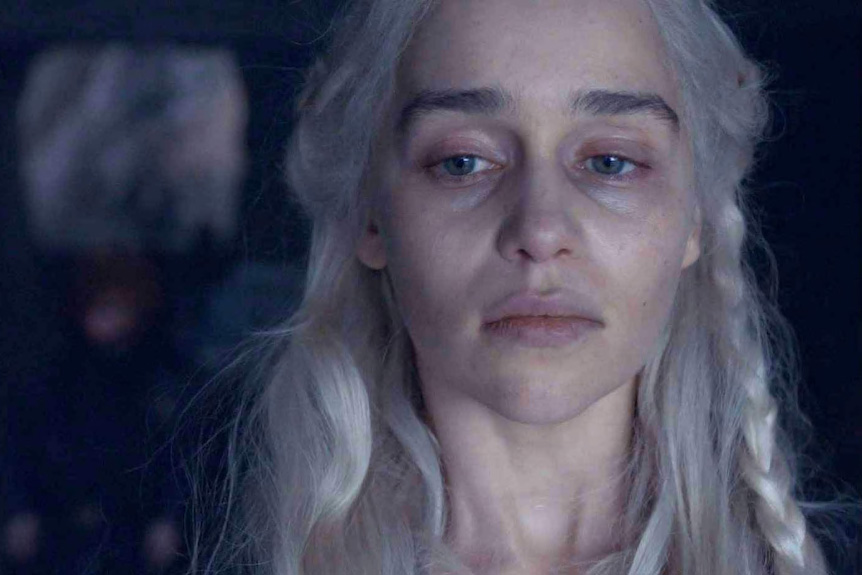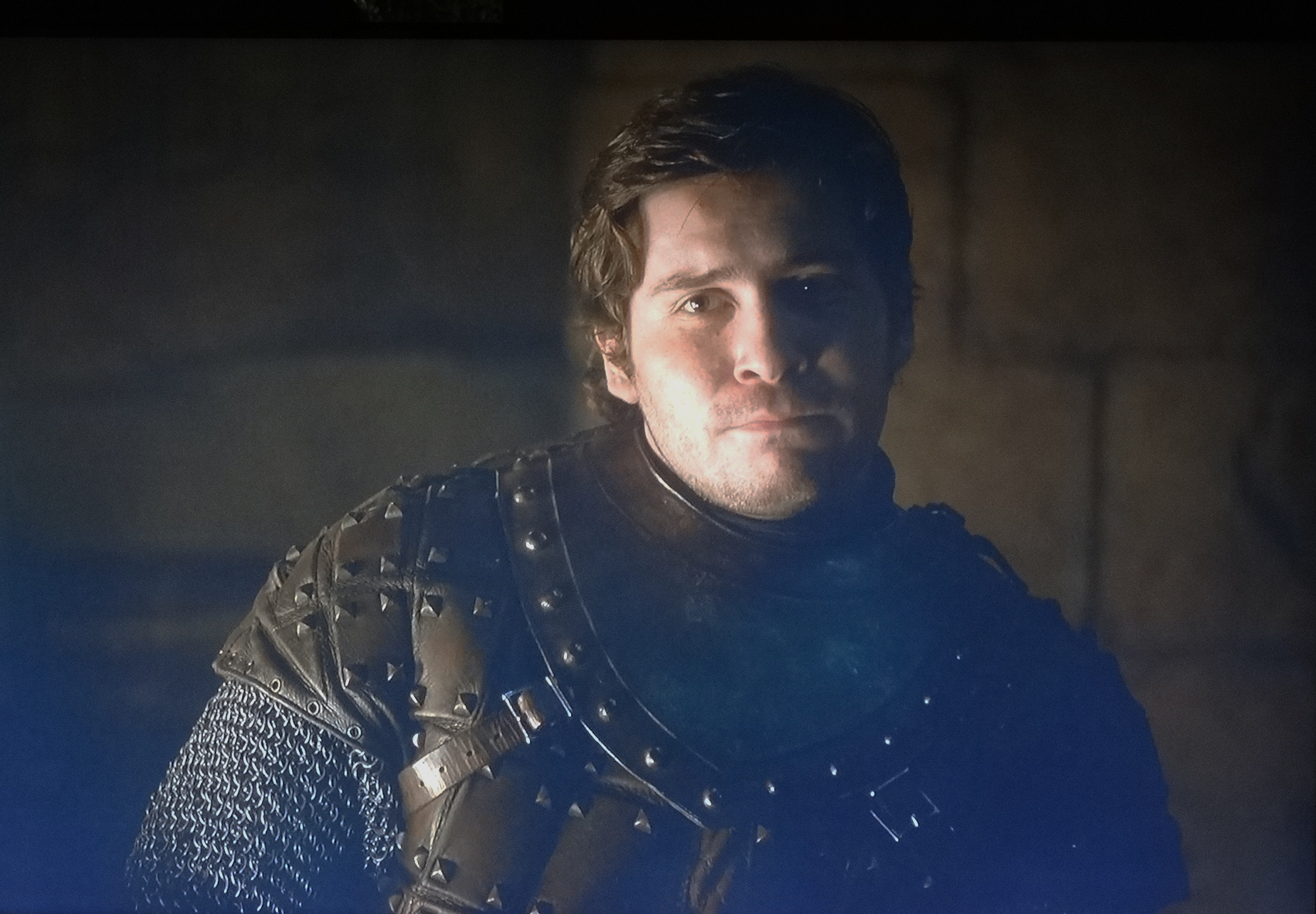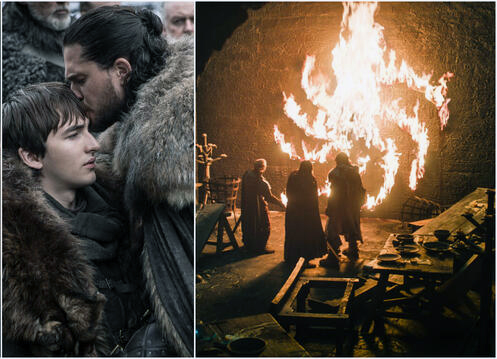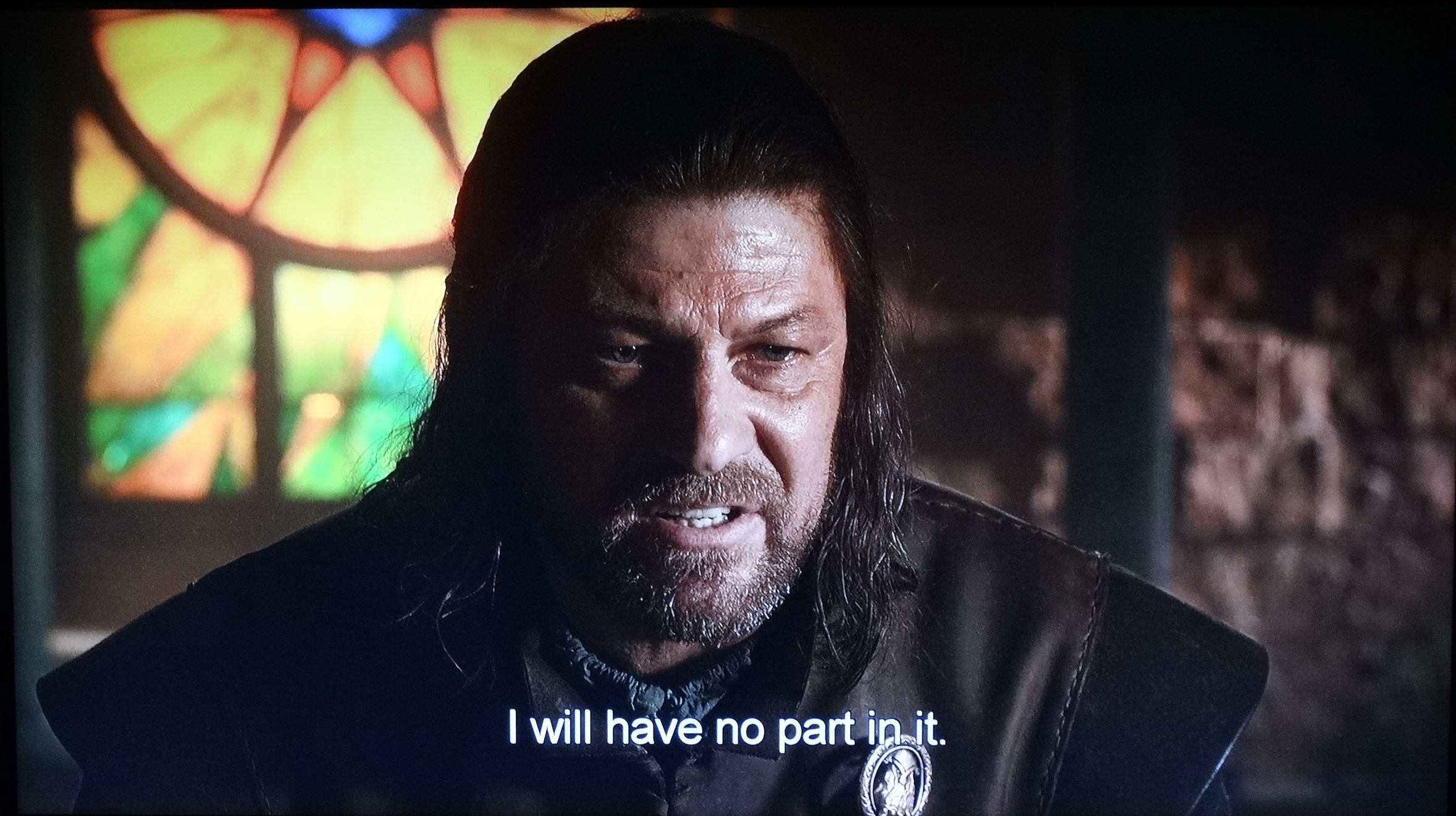‘The Winds of Winter’ is the tenth and final episode of the sixth season of HBO’s fantasy television series Game of Thrones, and the sixtieth overall.

It opens with artistic scenes in the Great Sept that are worth watching even if you don’t see the rest of the episode. Martin was obviously inspired by the medieval church.

High Sparrow: ‘Will you fight to defend your faith against heretics and apostates?’
Brother Loras: ‘I will’.
But even in the Big Sept the writers put up a damn feminist scene. Addressing the High Sparrow, Margaery blasphemes (‘Forget about the Bloody Gods and listen to what I’m telling you!’) in front of the Faith Militant, a sort of inquisitors, and all the nobles gathered at the trial of Loras and Cersei.

This is something as inconceivable as a woman shouting something similar to the pope of other times in St. Peter’s Basilica with the Holy Inquisition present.

The scene is ultra-feminist because Margaery not only curses in a holy place. She’s so clever that she senses that somehow the Great Sept is going to be attacked—something unbelievable within the plot itself. After the Night King killed the old man tangled in the tree only his disciple, the new three-eyed raven, has the power to know these things clairvoyantly (wildfire cache about to explode under the Great Sept).
Even worse, much worse, is what happens after the Great Sept explodes killing everyone, religious and nobles included. This level of feminism is so repulsive that I will tell it very briefly. The girl Arya, who should be dead from the stab wounds she received in a previous episode, single-handedly murders the feudal lord of House Frey and his sons. (Before that scene, Tyrion, supposedly the most intelligent man in Westeros, tells Dany ‘I believe in you’ and Dany turns him into Hand of the Queen with all the ritual of kneeling before the queen, etc.)
But the ridiculous feminist messages don’t end there. In Winterfell, after a few words from Jon Snow now that the Boltons were defeated for good, the prepubescent Mormont girl lectures three mature feudal lords! And it is this girl who, speaking to all the assembled lords of the north, proposes, now that there is no longer a guardian of the north, Jon Snow as the king and all acclaim him.
I have said it elsewhere and it bears repeating. To understand the darkest hour of the West what is needed is to understand the greatest hits of mass culture, as it was in the 19th century Uncle Tom’s Cabin (remember that Lincoln told its author: ‘So you’re the little woman who wrote the book that made this great war!’) and Ben-Hur: A Tale of the Christ, which also became a tremendous bestseller in the United States. In the 20th century, the film based on it would win eleven Academy Awards, and in the 21st century BLM would inherit the message from the little woman Lincoln spoke to.
It is there, the hits, where we can calibrate the pulse of the white man’s collective unconscious. In other words, to understand the dark hour it’s better to understand Game of Thrones than the boring texts of the Frankfurt School. It’s pop culture that drives the stupid masses, not so much what Kevin MacDonald discusses in The Culture of Critique.
To culminate the end of the sixth season, after the suicide of King Tommen there are no longer any men sitting on the Iron Throne. Now it’s a woman’s turn:
Qyburn: ‘I now proclaim Cersei of the House Lannister, First of Her Name, Queen of the Andals and the First Men, Protector of the Seven Kingdoms. Long may she reign!’
But Cersei is not the only queen. In the final scene of the season we see Dany with a massive armada, with her dragons flying above, crossing the sea to conquer Westeros.
The Battle of the Bitches is what lies ahead…
 Quite apart from D&D’s big mistake of compacting the plots that were left unfinished in a couple of episodes, fans also erred big by misjudging the last two episodes of the show. Although it would’ve required more seasons for proper execution, it makes sense for Dany to burn King’s Landing in this penultimate episode. See Yezenirl’s video ‘Foreshadowing is not Character Development: The Rationalization of Tyranny’.
Quite apart from D&D’s big mistake of compacting the plots that were left unfinished in a couple of episodes, fans also erred big by misjudging the last two episodes of the show. Although it would’ve required more seasons for proper execution, it makes sense for Dany to burn King’s Landing in this penultimate episode. See Yezenirl’s video ‘Foreshadowing is not Character Development: The Rationalization of Tyranny’.











